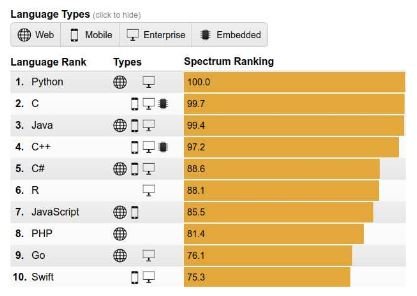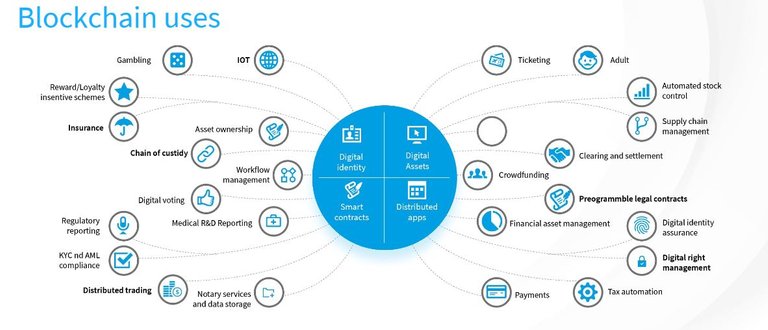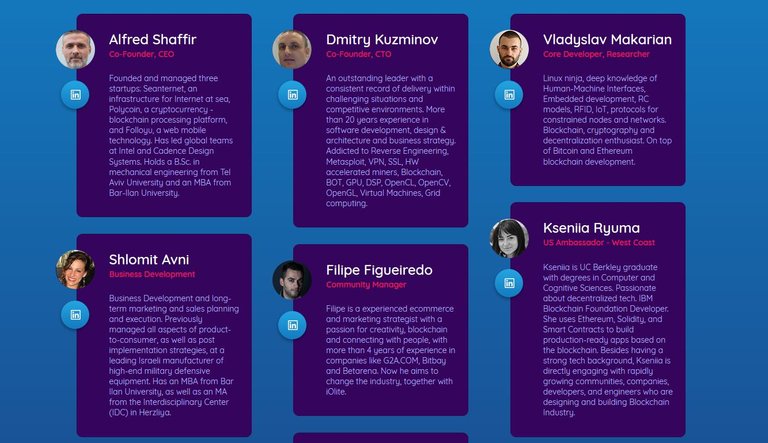
Overview & Vision
Much of the growth and excitement within the blockchain space is a result of newly available innovative technologies being harnessed for the advancement of specific industries and businesses; Storj’s decentralised solution in the data storage industry, and VeChain in the product verification sector for example. Once in a while, however, a project comes along with a vision to explicitly change the ever-evolving blockchain space itself.
iOlite is one of these projects, offering a solution which vastly improves accessibility and usability for developers previously foreign to blockchain-based programming languages. This has huge potential to open the space to mainstream developers, and for this reason it has particularly caught my eye.
Essentially, iOlite is an innovative platform which facilitates the coding of smart contracts in standard programming languages such as C++ or Python, by ‘translating’ that code into the language used by the blockchain protocol platform, e.g. Solidity for Ethereum. The solution even works with spoken languages e.g. English or Russian. A familiar user interface will make iOlite’s platform feel natural to any developer who has ever used an IDE (Integrated Development Environment) such as Visual Studio or Eclipse, turning a complicated task on a foreign platform into a familiar experience.
Currently popular coding languages, taken from the iOilte whitepaper: https://iolite.io/static/docs/iOlite-Whitepaper.pdf
This is exactly the type of blockchain-based innovation which is going to propel the space itself forwards through making participation more accessible; iOlite’s solution intends to create a bridge to the blockchain world for mainstream developers and businesses, by making the traditionally incredibly difficult blockchain-specific development process as seamless as possible.
Current Situation
Though the industry is still in its hatchling phase, blockchain’s use cases as a genuinely disruptive innovator extend far and wide, and any problems which arise need to be resolved from within the space in order to ensure its constant evolution. In the case of iOlite, their platform is an answer to the problem of ‘translation’ between the blockchain-based languages and traditional programming languages. In order to utilise the full potential of blockchain this communication problem- along with others- needs to be solved.
The blockchain space suffers from many teething problems which are contributing to a slow mass adoption; from the development aspect, writing smart contracts is lengthy and expensive, and currently the specific nature of blockchain-based languages means that those who even have the technical ability to create smart contracts are few and far between.
This technical barrier to entry is a bottleneck problem preventing the mass adoption of blockchain by developers and businesses alike. But as we know, the whole blockchain space is built on innovation and there are bright-minded people such as those at iOlite who are already developing a solution.
Significant innovative use cases for blockchain technology, taken from the iOlite Overview paper: https://iolite.io/static/docs/iOlite-Overview.pdf
iOlite’s Solution
In a nutshell, iOlite is devising a solution which utilises cutting-edge blockchain and machine learning technologies to effectively ‘translate’ any traditional programming language into a specific target blockchain smart contract code. This bridging of languages will technically be achieved by iOlite’s Fast Adaption Engine (FAE) which is capable of adapting any known programming language into smart contract code efficiently and accurately.
By allowing a seamless transition from traditional to blockchain languages, mainstream developers and businesses can much more easily access the benefits of blockchain-based innovation without stepping outside of their comfort zone or enduring a complicated process.
For example, for a mainstream C++ programmer to write code for Ethereum, it would be as easy as installing a blockchain plugin in their usual IDE and coding in their familiar C++. iOlite’s FAE would then convert that code into the desired blockchain language, in this case Ethereum’s Solidity language.
This could be a huge leap forward for the crypto space and could represent yet another important pivotal point in the history of blockchain. But are the team qualified to carry out their game-changing vision?
Team
Snapshot of the iOlite team, taken from the website, where you will find LinkedIn profile links and more details on each team member, plus advisor details: https://iolite.io/
Anybody can write an impressive whitepaper and create a persuasive website; the idea is the easy part, it’s implementing the idea which is difficult. In the Wild West of crypto, ensuring that the team has the experience and capability required is crucial.
The team at iOlite exercise an impressive collective array of skills and expertise, and combined have decades of relevant experience in many areas crucial to their vision. For instance, their CEO Alfred Shaffir is a serial tech entrepreneur and CTO Dmitry Kuzminov alone harnesses over 20 years of experience in software development, design & architecture and business strategy.
There are more than ten core team members listed on the iOlite website, along with a healthy set of Advisors, so I won’t delve into detail on each here but overall the team look particularly impressive from a marketing and development standpoint.
You can find an excellent description of each team member alongside a link to their LinkedIn profile on the ‘Team’ section of the iOlite website (see photo caption for link).
Verdict & Summary
iOlite’s solution intends to create a bridge to the blockchain world for mainstream developers and businesses utilising their machine learning and blockchain-based ‘transation’ layer, the ramifications of which could be HUGE. There are vast innovative use cases for blockchain technology, much of which however is currently being unexplored due to accessibility limitations due to the use of specific (and often notoriously complicated) native blockchain languages.
iOlite are proposing a situation in which any programmer who has a blockchain-based vision can code a smart contract on any given platform, using any given language. If the team can deliver, iOlite could be paving the way towards a much more inclusive and accessible blockchain space.
It is projects such as iOlite, which allow for more people from ‘real world’ spaces to interact with and understand the benefits of blockchain-based innovation, that will be the biggest drivers of mainstream adoption in my opinion. I will certainly be keeping a keen eye on iOlite along their journey towards developer inclusivity.
Have any questions regarding iOlite? Join their active community on Telegram where you can discuss anything iOlite-related: https://t.me/iolite
Learn more at their website, where you can also find their website if you want to dig in deeper: https://iolite.io/



What a cracking idea if all developers were able to use their own coding language think how msny more mught consider entering the space. Cool!
Great info, I have followed. Think you should make a spreadsheet
Good